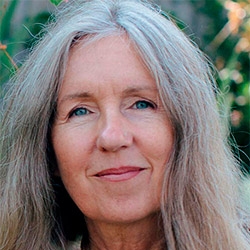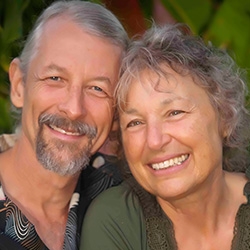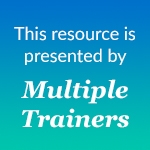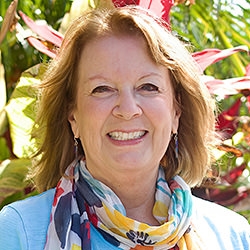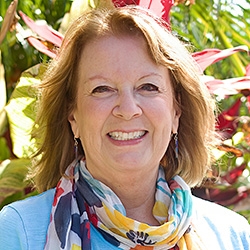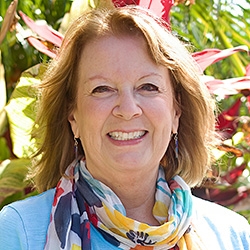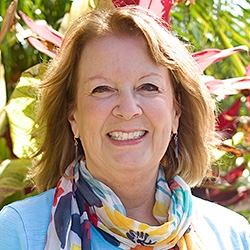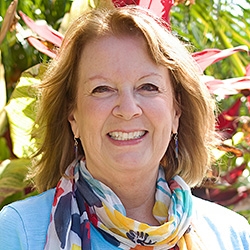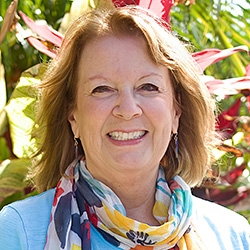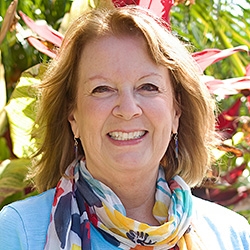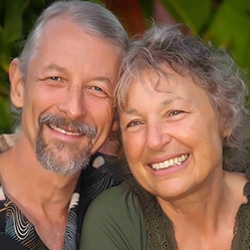

Search Results: resentment
-
When you say yes, check if you are saying it out of submission. Similarly, when you say no, are you saying it genuinely or out of rebellion? Marshall Rosenberg calls this a loss or erosion of goodwill which can destroy or undermine relationships. In this video, Rachelle Lamb shares how submission and rebellion in communication can diminish your power.
-
Join CNVC Certified Trainers Jori and Jim Manske in an exploration of how gratitude can enable you to remain more present moment to moment, thus enabling you to flourish in your life!
-
Larsson explores how enemy images form and how they impact our relationships and self-understanding.
-
Learn how jackal and giraffe mascots teach NVC dialogue, with many jackal examples.
-
NVC trainers discuss intrinsic needs in addiction and its alignment with 12-step programs.
-
It is the first day of December and it seems to me as if 2023 went by with a flash. I have felt deep despair about the growing division between people and the devastating impact it has had on human beings, all life in fact, including our planet. And, I have also experienced many moments of joy and satisfaction this year.
-
Trainer Tip: Anger can be an opportunity to hear the "Please" behind the words and create a path to resolve conflicts compassionately.
-
-
Mismanaged emotional pain can compound and hurt ourselves and others. Four ways we can mismanage pain are: denial, blame, depression, and escape/numbing. This can result in hatred, resentment, discrimination, revenge, anger, and more problems. The fifth way we can deal with pain is to confront the pain acknowledging it and dealing with our unmet needs. This is a more direct path. Read on for more ideas for how to handle the pain.
-
The question “Is X an evaluation?” (where “X" represents whatever word is under discussion) has taken up some controversy in the NVC network. Often, context changes the meaning and assessment of words (eg. use of the term "domination" as in "You’re trying to dominate me!” vs. “domination societies”). Read on for several questions that can support understanding whether a term is evaluative, and reflect on the results it produces.
-
Trainer Tip: Q: How do we get the love we want? A: Ask for it.
-
Miki Kashtan reveals how choice is always available, no matter the situation or circumstances.
-
John Kinyon guides exercises to build presence and distinguish feelings from observations.
-
How do we live each and every day from the “living energy of needs” – with the unimpeded fullness of life’s energies flowing through us, regardless of the conflicts or life circumstances we may be experiencing? Through developing deep self-compassion. How can we experience our inner world from a place of utter and total compassion? When we practice compassionate self-care, we create an inner spaciousness that allows our life’s energies to flow. In that spaciousness both healing and inner transformation occurs. Robert’s work explores the interweaving of two co-intentions—to live life from the fullness of the “beauty of needs” and to approach every experience with deep compassion.
-
Trainer Tip: Mourning enables us to heal the pain and gain clarity about how to meet our needs in the present moment.
-
What's really going on underneath the surface when we bring or encounter blame, judgements, pain -- and thereby the inability to empathize, be present, attuned, or responsive? Why does this happen even if one or more people in a relationship dynamic is working hard at bringing in an NVC response? This article addresses these and more questions from the perspective of how our brains are affected in our relationships.
-
Trainer tip: Empathy is about being present to a person’s feelings and needs. It is acknowledging another’s experience, not necessarily agreeing with it. If you have a different opinion than another, empathize with her first. Then, state your feelings and needs with regard to the situation.
-
Trainer Tip: Without knowing our feelings, its harder to live fully present, take care of ourselves, and make sound decisions. If its difficult for you to know what you feel and to express your feelings, consider reviewing a list of feelings, practice expanding your feelings vocabulary, and naming your feelings.
-
Experience NVC consciousness through exercises as if attending a live workshop with Mary.
-
Join CNVC Certified Trainer Jori Manske in an exploration of how gratitude can enable you to remain more present moment to moment, thus enabling you to flourish in your life!

Quick Links
Subscription Preferences
Stay In Touch!
Looking for ways to keep up with NVC Academy news, get special offers, free resources, or words of inspiration? Here are five ways to stay engaged:

